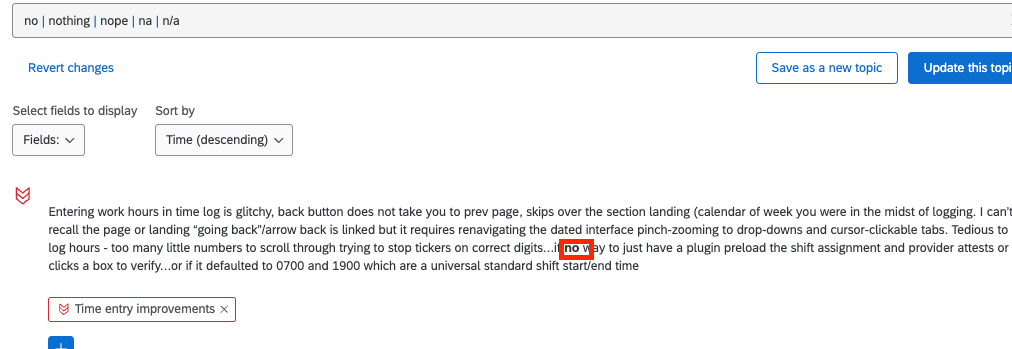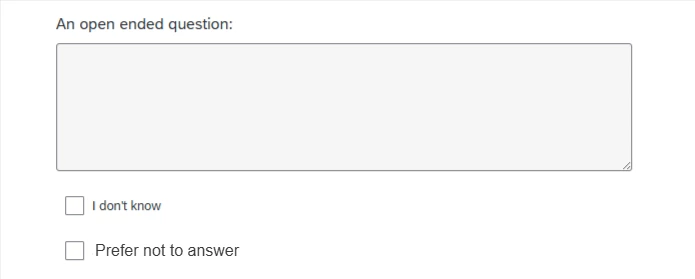We have an open text box asking for additional feedback - people will often reply “no,” “nope,” “n/a,” etc… I’m wanting to run them through textiq to tag them with a topic of “N/A” and then use that as a filter on dashboard widgets so that we aren’t having to scroll through responses where they left us essentially no information. The issue I’m not sure how to solve is how to make the textiq query look for that specific word and not tag it if there are other comments as “no” can be used in other ways. Basically I’m wanting the topic to tag ONLY if they wrote in “no” and nothing else.














